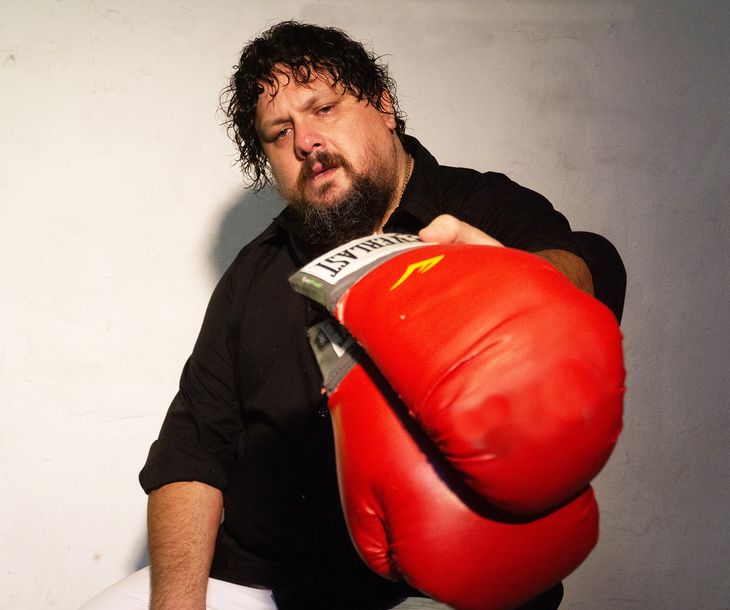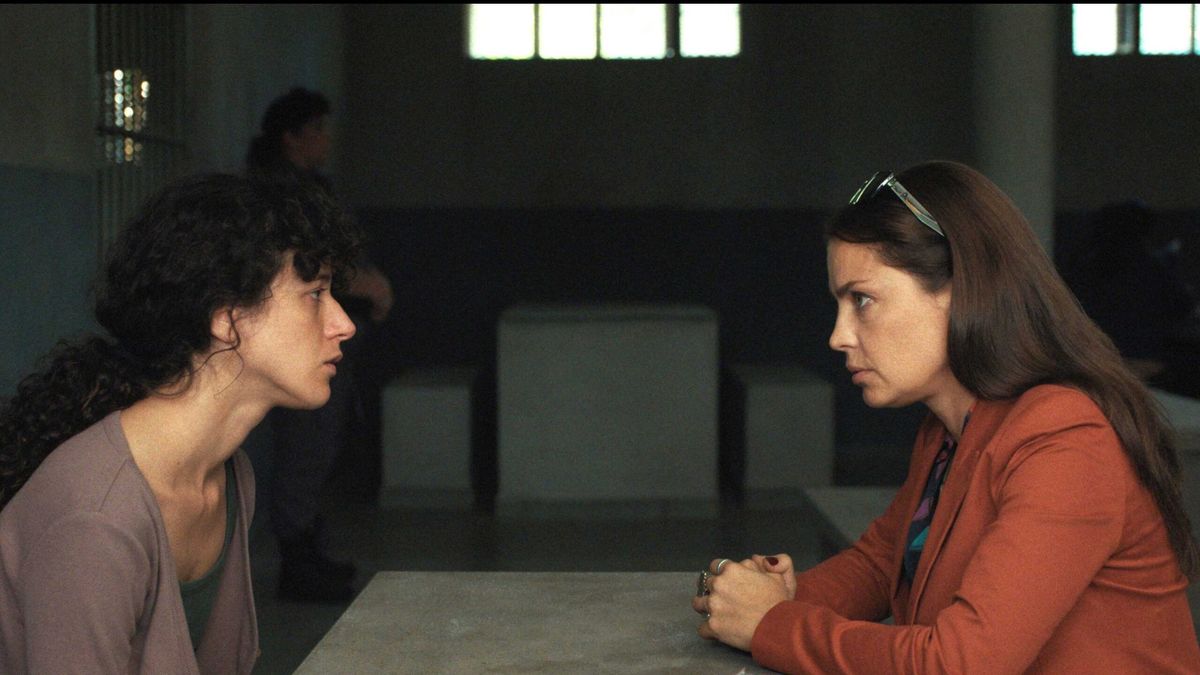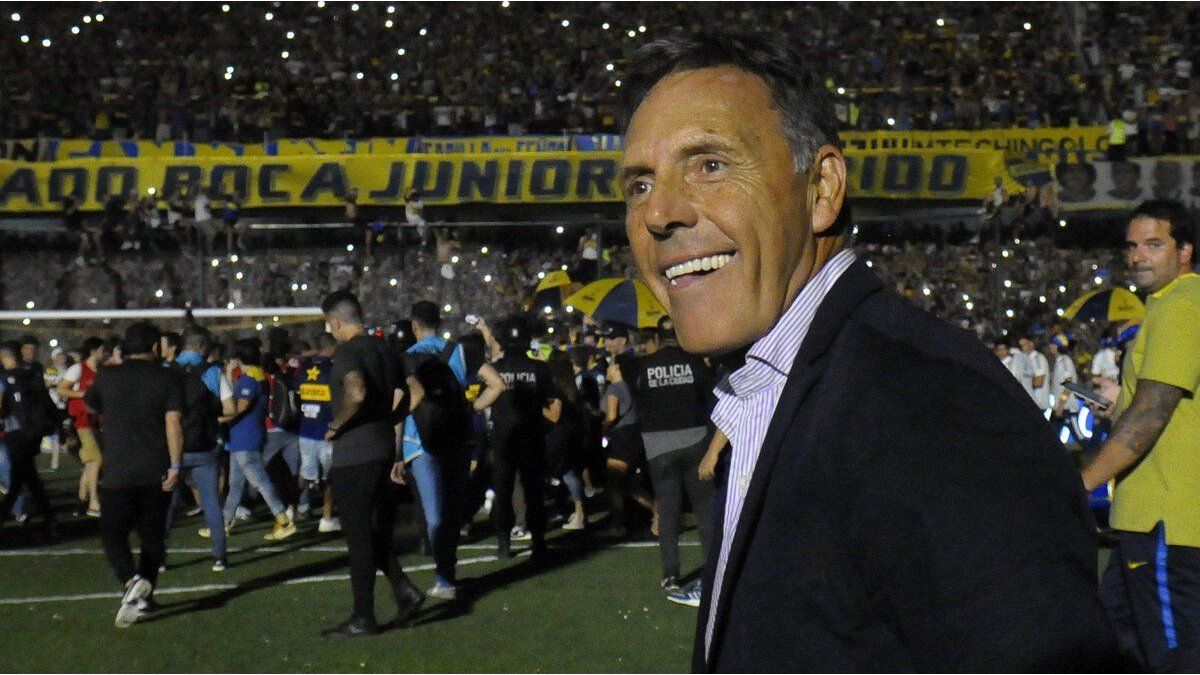“These are times to be brave and see how to produce, without subsidies, to be truly independent, we have to reformulate ourselves. Since 2020 the universe has been asking us for it. “The relationship with the theaters, the technical areas that charge and actors that work for free until they collect the borderaux, there is something that has been running out and that needs to be rethought,” says Mariano Dossena, director of “The champion says goodbye.”
The sole proprietorship of Fernando Zabalastarring Christian Thorsen debuts next Tuesday at Itaca Complejo Teatral, and tells the story of a boxer and his coach, among other issues. We talk with Dossena.
Journalist: What interested you about the work to want to direct it?
Mariano Dossena: I found a good story to tell, something that sometimes is not abundant. It is a town story, written by a Cordoba author, based on a popular idol like El Bicho, a boxer, who takes us to meet Lopecito, our protagonist, who was the coach and is watching over the boxer. There is a dialogue evoked with his father and that allows the story to be told in a thriller style. There is something that is revealed in that process, something very good for an actor, how he transforms in front of the viewer’s gaze. Lopecito starts in a way that will be very different from how he will end, that reverse game is interesting. The text is beautiful, with very poetic images that are at times tender and very terrible, an interesting cocktail for the staging.
SEPARATEELCAMPEON-CristianThorsenF2.jpg
Q.: You say it’s a passionate thriller, a grotesque, a crack tragedy, what’s all that like together?
MD: Everything that happens is excessive, there is some police intrigue that is carried out out of passion. The Argentine grotesque comes because of what Discépolo said, so much pain that he makes people laugh, and this character is in that instance. What he went through is so painful that at times the only way out is with humor, minimizing or lightening it, so that he can endure what happens to him. I think of the play as a Greek tragedy because it begins with a death, and the end also has some death so when it began everything that had to happen had already happened, as the Greeks said.
Q: What themes does the work touch on?
MD: Love, passion, the repression of instincts, everything that cannot be expressed ends in tragedy. What happens to the character is terrible because he can’t say who he is. Also what they will say, that it is set in the little town but it happens everywhere. What is not allowed, there is still a lot of taking off masks even though we are in an advanced stage, the theater can continue talking about that. They are universal themes, there are still women and men dead for what cannot or should not be done.
Q: What is it like producing independent theater right now?
MD: Money is always necessary even if we live by carrying out desires, at this time it is very complex, more than ever. We must reformulate ourselves, the independent theater that preceded us was independent without subsidies, with pure heart and dedication. This is a new model to think about, how independent we were working until the subsidies began to fall. It’s good to think that now you really have to risk it. In the 90s when I did theater it was not so easy to be in an independent work, that place was highly valued because there was someone who was risking savings and there were no subsidies, there were fewer shows and they were done. We have to see new ways of producing, we have to get something good out of all this.
Q: Is a sole proprietorship easier because of the low cost, is it easier to pivot?
MD: Yes, because of the costs, but it is difficult to generate a sole proprietorship because beyond the quality of actors, there is a lot to resolve in all areas; it is complicated beyond the quantity of actors. The question of how to produce and be braver. Let everyone contribute money, the set designer, costume designer, lighting, we will become an SME, where everyone contributes and everyone gets paid. Many times actors are overemployed but not paid. Everyone gets paid except them.
Q: How are theater and culture today?
MD: They always survive everything, they find a way, it happened in a pandemic, they reinvented themselves. The theater survived wars, malaria, famines, plagues, and in this country the culture of theater is sacred, it is always surprising due to the number of works and it is not understood how we do it. It’s something half self-sacrificing, telling stories, acting, directing, it’s a mystery.
Source: Ambito
I am an author and journalist who has worked in the entertainment industry for over a decade. I currently work as a news editor at a major news website, and my focus is on covering the latest trends in entertainment. I also write occasional pieces for other outlets, and have authored two books about the entertainment industry.




